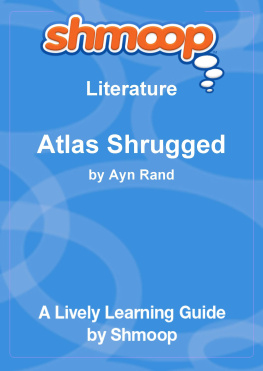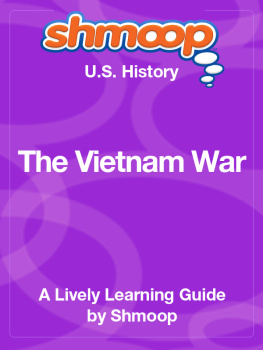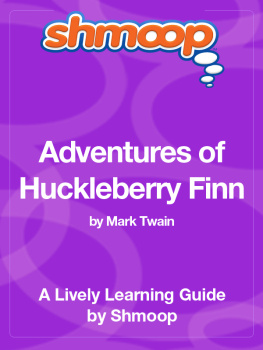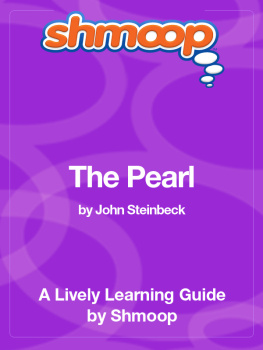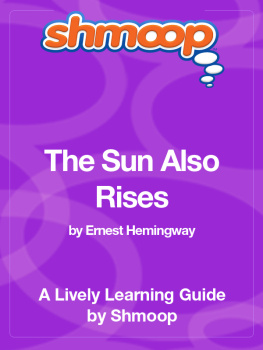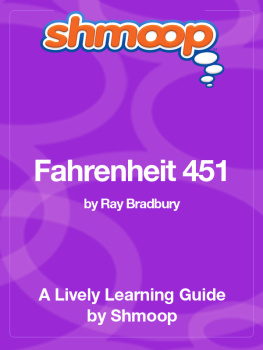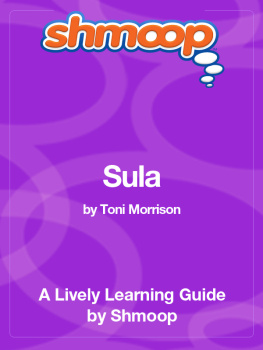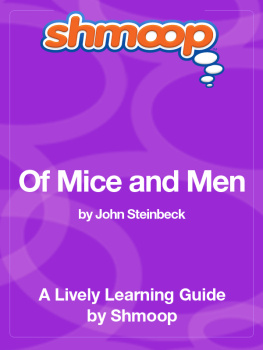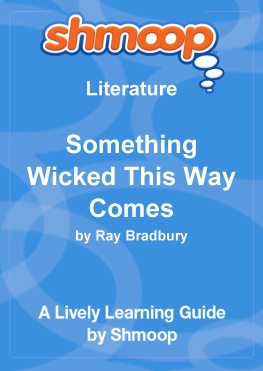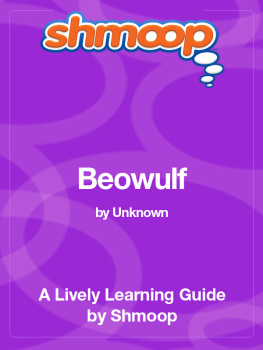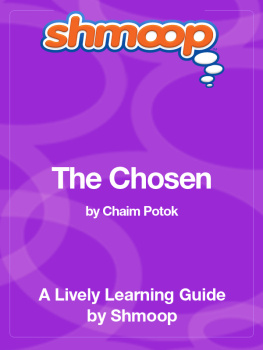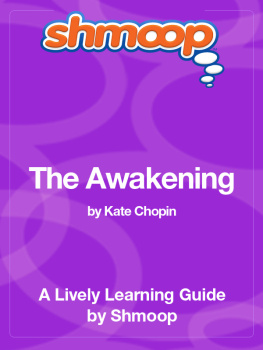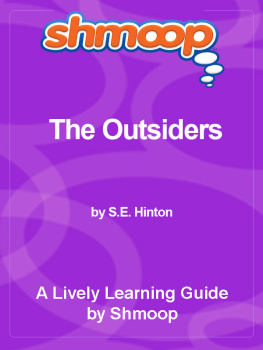
Table of Contents
In a Nutshell/Overview
Published in 1957, Atlas Shrugged was Ayn Rand's last and most ambitious novel. Rand set out to explain her personal philosophy in this book, which follows a group of pioneering industrialists who go on strike against a corrupt government and a judgmental society. After completing this novel Rand turned to nonfiction and published works on her philosophy for the rest of her career. Rand actually only published four novels in her entire career, and the novel that came out before Atlas Shrugged, The Fountainhead, was published in 1943. So there was a pretty long publishing gap there.
It might seem a bit odd to use a work of fiction to make a philosophical statement, but this actually reflects Rand's view of art. Art, for her, was a way to present ideals and ideas. In other words, Rand herself admitted that her characters may not always be "believable." They are "ideal" people who represent a range of philosophies. Rand used these characters to show how her philosophy could be lived, rather than just publishing an essay about it.
Rand's personal philosophy, known as Objectivism (to read more about it, check out our Themes section) was, and remains, really controversial. Objectivism criticizes a lot of philosophies and views, ranging from Christianity to communism, and as a result it can be very polarizing. Rand herself was a devout atheist, held very open views about sex (which definitely raised some eyebrows in 1950s America), and was a staunch anti-communist.
Rand's anti-communism stems from her personal history. She was born in Russia in 1905 and lived through the Bolshevik Revolution, which is when communists overthrew Russia's monarchy and took over, establishing the Soviet Union. The Revolution was a bloody affair, and the new communist government was very oppressive; as a result Rand developed a lifelong hatred of communism and violence of any sort.
Rand fled the Soviet Union in 1926 and came to America, where she quickly became a fan of American freedom, American democracy, and American capitalism, all of which greatly contrasted to the experiences she'd had in the oppressive Soviet Union. Rand's personal philosophy developed around these American ideas, in opposition to the type of life she saw in the Soviet Union.
Given that Atlas Shrugged is a statement of Rand's personal philosophy, the book expresses many of her views on religion, sex, politics, etc. When it was published, it received a lot of negative reviews. Many conservatives hated the book for its atheist views and its upfront treatment of sex. Many liberals hated the book for its celebration of capitalism. The book also confused a lot of people. But the novel sold, and it has remained popular since; it's actually never been out of print since it was first published over fifty years ago. Atlas Shrugged was kind of like one of those blockbuster movies that gets horrible reviews but still does really well at the box office. Something about this book intrigues people, whether it's the characters, the ideas, or just the mystery plot itself.
In fact, Atlas Shrugged has even seen a renewed surge in popularity lately, coinciding with the recent financial crisis. (If you want to see some of the news coverage of this, check out our "Best of the Web" section.) The book does deal with industrialists and hard financial times, so this popularity boom is not too surprising. In recent years the news media has often classed the novel as ber-conservative, which is funny, since a lot of conservatives hated the book when it first came out. At any rate it's still a very controversial book - just check out the hundreds of varied reviews it has racked up on Amazon.
Why Should I Care?
In an old episode of South Park, a character who reads Atlas Shrugged declares that the book ruined reading for him and that he would never read another book again. (If you want to watch this hilarious clip, head on over to the "Best of the Web" section.) There's a reason this book is so often made the butt of jokes. It's long. Crazy long. We're talking Tolstoy levels of longness. It's also a book that's about politics, philosophy, 30-something business people, and more philosophy. Frankly, this book can seem downright off-putting. Even the title is confusing.
So why should you care? Well, for one thing, putting aside all the Deep Thoughts and Profound Ideas in this book, we have a bunch of characters who are challenging the establishment. Seriously. At its core, this book is about individuals who go against the crowd, individuals bold enough to speak their minds, do their own thing, and seek their own happiness. And in trying to do so, these bold individuals face a heck of a lot of peer pressure. In fact, pretty much everyone in the whole world disapproves of these people, who are trying to make better lives for themselves by embracing things like liberty and self-esteem.
It's like high school times a billion. The world is filled with the snobby popular crowd and our intrepid band of misfit heroes is outnumbered, but never outsmarted. Turns out all that philosophy we mentioned earlier has a lot to do with all of this individualism and going against the crowd, too. Whether it's a high school cafeteria or a high-powered business meeting, some things seem to stay pretty universal. This book shows that there are always people who want to march to the beat of their own drum and who are bold enough to risk mass disapproval in order to do it. Kind of cool and inspiring really, regardless of your opinion of their particular philosophy.
What's Up With the Title?
Upon hearing this title, your first reaction may be, "huh?" Who is Atlas? Why is he shrugging? Well, first off, Atlas refers to a Greek myth. In Greek mythology, Atlas was a Titan. The Titans had a big war with the Olympians - Zeus and that crowd - and lost. As punishment, Zeus made Atlas forever hold up the heavens on his shoulders. In many pieces of art, Atlas is shown holding up the globe. (Check out these images for some examples.) Which brings new, literal (and painful) meaning to the phrase "the weight of the world on your shoulders."
In this book, Atlas serves as a metaphor for all the smart, creative "doers" in the world: the industrialists, the artists, the engineers, the professors, etc. Just like Atlas, these are the people responsible for supporting the entire world. In Rand's opinion, they are all mistreated and are opposed by bad government policies. So they all go on strike and basically "shrug" off the weight of the world. The shrug part is important here. This strike of heroic individuals is a nonviolent one. That's why the book isn't called "Atlas Threw Off the World."
It's also worth noting that shrug is in the past tense in the title. The novel itself is narrated in the past tense and the action covers a span of many years. This all contributes to the legend-like quality of the book's plot, and the reference to Atlas, a mythological figure, also contributes to the novel's epic scope.
What's Up With the Ending?
The ending of the book is kind of a downer and a half, which feels like a bit of a rip-off considering that we've stuck around for thousands of pages. We do get a positive, heroes-saving-the-day moment when our crowd of Super Friends rescue Galt from the Villains' Evil Lair, so to speak. But as they are getting the heck out of Dodge, Dodge pretty much collapses. New York plunges into a blackout, and the country's transportation system goes to hell in a handbasket. The very end of the book tracks our heroes safely back to Galt's Gulch, the valley that Dagny calls Atlantis. But this is kind of undercut by the wrenching scene that immediately precedes it: that of our favorite Super Sidekick Eddie Willers, collapsed on the ground and stranded alone with no way to get home.

